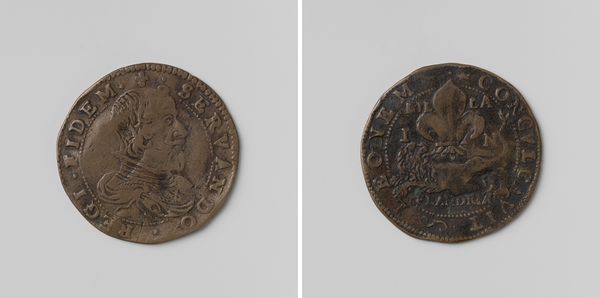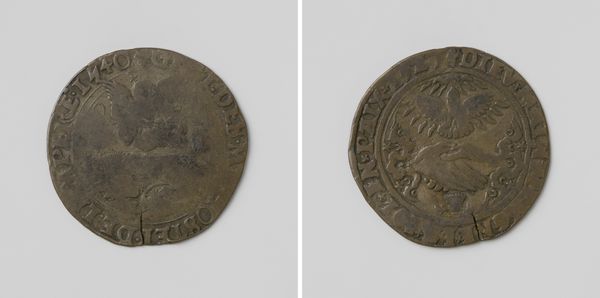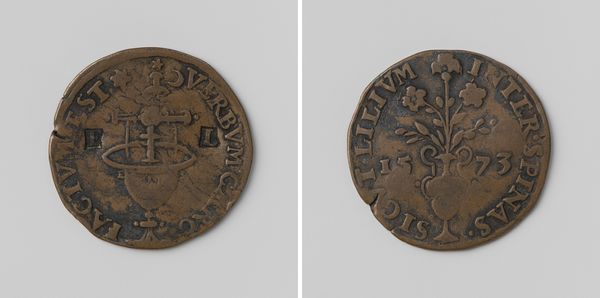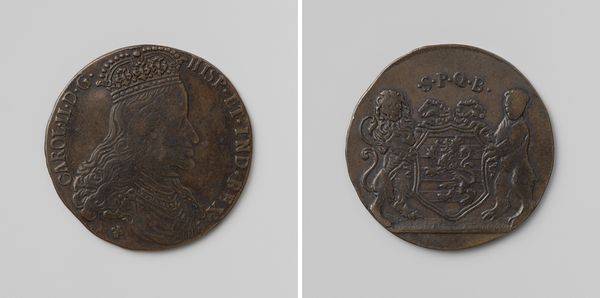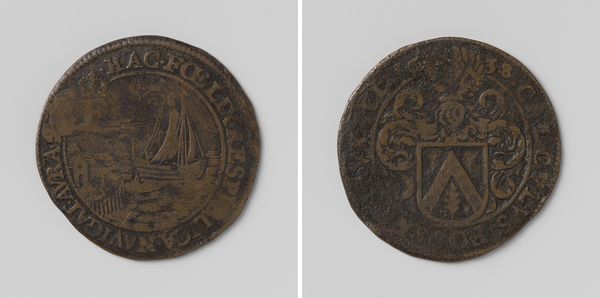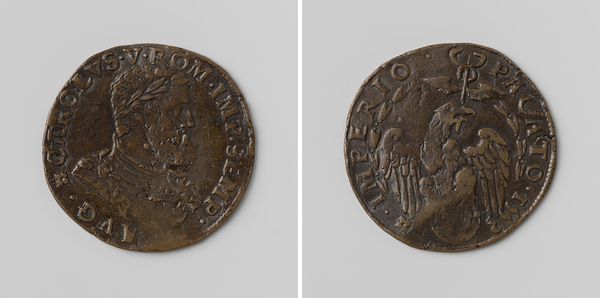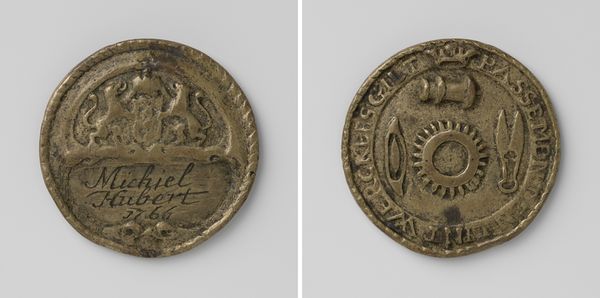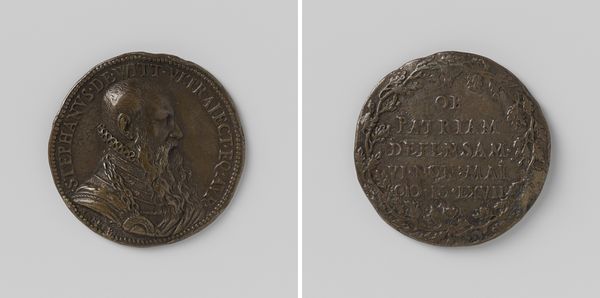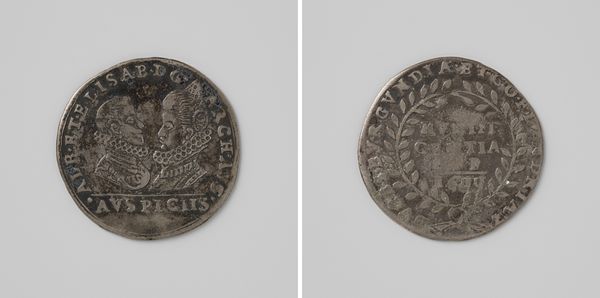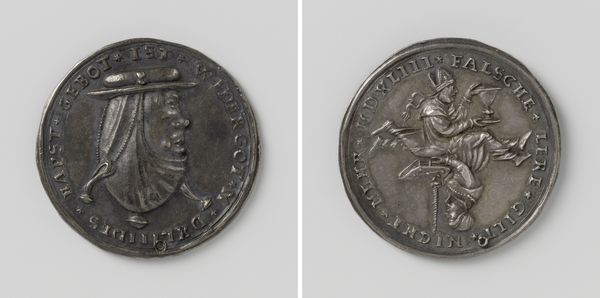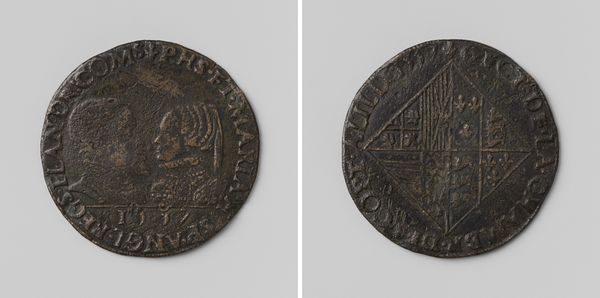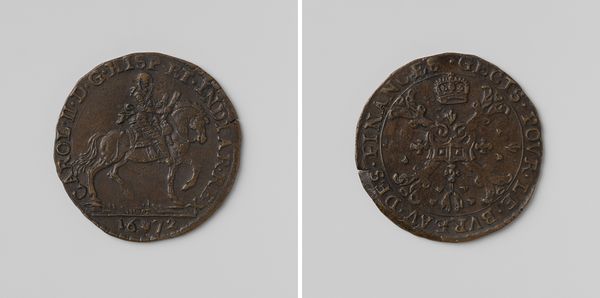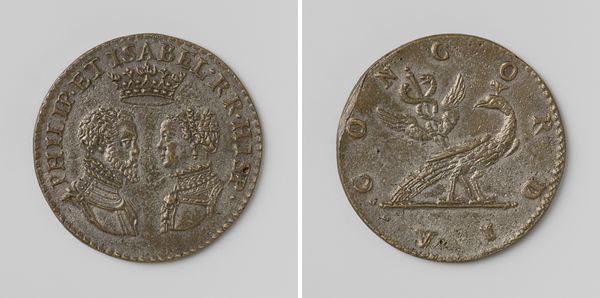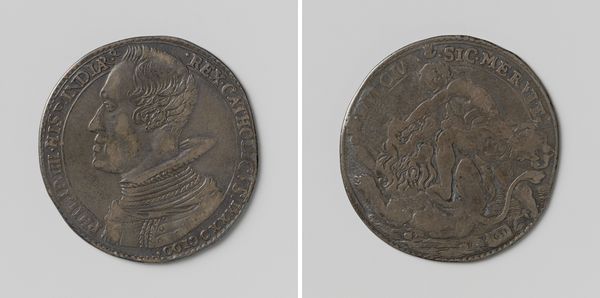
relief, bronze, sculpture
#
portrait
#
medal
#
sculpture
#
relief
#
bronze
#
11_renaissance
#
sculpture
Dimensions: diameter 4.2 cm, weight 32.86 gr
Copyright: Rijks Museum: Open Domain
Editor: Here we have a bronze relief from 1499 titled "Giangiacomo Trivulzio, maarschalk van Frankrijk," or "Marshal of France," portraying Giangiacomo Trivulzio. The details in his clothing and facial features are amazing! What do you make of it? Curator: It's fascinating to consider how these portrait medals functioned in Renaissance society. They weren’t just art objects, but powerful statements of identity and political alignment. Who was Giangiacomo Trivulzio and how does this portrait solidify his position within the narratives of power and influence? Editor: Based on the title, it appears that he was a marshal in France, or military officer. What statement was this work trying to make, though? Curator: Consider the function of portraiture at the time. It was a deliberate act of self-fashioning. Trivulzio had a complicated relationship with both Milan and France, switching allegiances multiple times. He became a symbol of shifting power dynamics, embodying both the glory and instability of the Italian Wars. This medal could be seen as an attempt to solidify his legacy, control his narrative, and make a statement in a very volatile social moment. Does the image's style itself lend support to such claims? Editor: I see. It’s interesting how this seemingly simple bronze medal contains so much history and complexity, and the piece has a larger story about the conflicts he was involved in and his position within those historical conflicts. Curator: Precisely! The aesthetic and material choices were not just about visual representation; they actively participated in shaping historical narratives and solidifying social positions, something important to understand as we navigate today’s society.
Comments
No comments
Be the first to comment and join the conversation on the ultimate creative platform.
